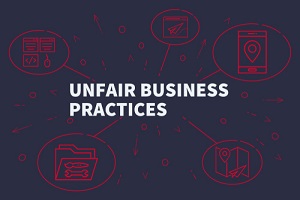By Eric D. Morton
Since the beginning of the Internet, some e-commerce companies have used deceptive advertising and sales tactics. In response, the Federal Trade Commission, and state attorney generals and consumer protection agencies, sued those companies for unfair business practices and deceptive advertising. In the late 1990s and early 2000s, the FTC sued many companies for such practices as pre-checked boxes on checkout pages for services that consumer didn’t desire to purchase.
Recently, the FTC has started cracking down on what are called Dark Patterns. Dark Patterns are manipulative and deceptive online design practices that trick or steer an online consumer to choices that the consumer did not want or would not otherwise made. Here is a link to a FTC staff report that gives examples and definitions of Dark Patterns: FTC report

Some examples of Dark Patterns are as follows:
- Misdirection. Where the website design nudges users towards a more expensive option and distracts them from the standard option.
- Confusing Checkboxes. Checkboxes are probably most common examples of dark patterns. These are often opt-in checkboxes that are on the checkout page with other checkboxes confirming a sale or agreeing to terms and conditions. Consumers
- Pre-selected extras at checkout. This is common in the travel industry. A consumer reserves a car to rent. At check out, the rental car company’s insurance is automatically added. The consumer must uncheck/remove the insurance, and many consumers won’t notice until they have paid.
- Hidden prices. Pricing, particularly for upgrades, is hidden. This is also common in the travel industry. A consumer who wants in upgrade in service doesn’t find out the price of the upgrade until checkout.
- Hidden Ads. Advertising that appears to be content but is an ad when clicked upon.
- Hidden continuity. A free trial for a service for a period of time. When the free trial period ends, the service continues and the consumer is automatically charged a fee. The explanation is often in the fine print of the agreement for the free trial that the consumer clicks as having understood (but are rarely read).
- Using the consumer to spam. A consumer connects an email address or social media account to a website – so the consumer can find a friend to play a game on a game website. The website owner then uses the consumer’s contacts to send email to all of them.
- Hidden costs: Extra items that appear in a cart or hidden charges that the end of a checkout. A variant is a website trying to prevent a consumer from redeeming coupons or promo codes – they apply but then drop off at checkout or if the user looks at other items.
There are many other types of Dark Patterns. The only limitations are the imagination and ethics of web designers.
The FTC is actively pursuing companies that use Dark Patterns unfairly. At the end of 2022, the FTC settled allegations that Epic Games, the maker of the video game Fortnite, had used dark patterns to trick users into making unintentional purchases. As part of the settlement, Epic Games agreed to pay $245 million in refunds to affected consumers.
Please note: The FTC does not just go after big companies such as Epic Games. They will go after small companies. I know companies that have tangled with the FTC and it is a bad experience. The FTC not only goes after the company but officers and employees responsible for the illegal practices.
What to do?
If you are a consumer, read the fine print, in fact, read everything, and take your time when navigating an ecommerce website. Stop and think. Do not agree to give up your information, except as necessary for your current transaction. Do not use another account to login.
If you are a business with a ecommerce website, think of your reputation. Consumers know when they are being tricked and treated unfairly. Consumers have many ways to retaliate today with reviews and social media. A rule of thumb for web designers is: what is the consumer expecting? If the consumer is not expecting an extra box checked, or an extra charge that was not explained, leave it out. Consult with an attorney if you have any questions about the legality of a web design or practice.
Eric D. Morton is the principal attorney of Clear Sky Law Group, P.C. He has many years experience in advising businesses on their Internet practices. He can be reached at 760-722-6582, 510-556-0367, or emorton@clearskylaw.com.


